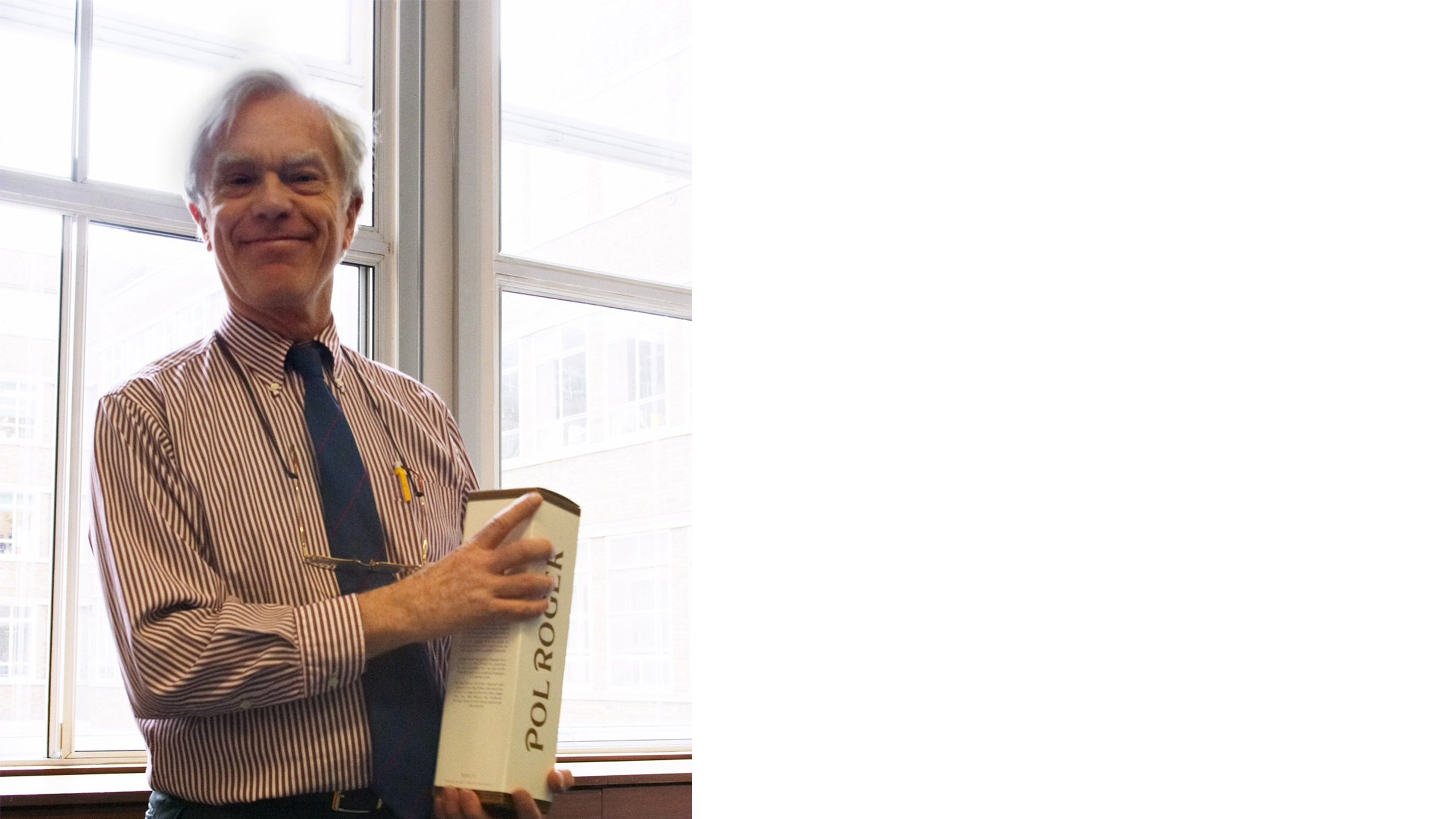In memory of Professor
John Bridgwater
10 January 1938 - 2 May 2021

Emeritus Professor and former Head of the Department of Chemical Engineering, John Bridgwater, sadly passed away on 2 May 2021. Professor Malcolm Mackley, and other colleagues at CEB, pay tribute to a kind, supportive and highly influential chemical engineer who was instrumental in the growth of our Department and the academic talent within, to the flourishing interdisciplinary hub it is today.
Following John Davidson’s retirement in 1993, Professor John Bridgwater was appointed as the Shell Professor of Chemical Engineering. John also became Head of the Department for a period of five years and this marked the beginning of a new era. John had started his academic career in the Department, working thereafter at Courtaulds, Oxford and Birmingham before returning to Cambridge.
His style was very different to his predecessor and the Department saw many changes during his leadership. The most visible change was the proliferation of mezzanine floors in the Pembroke Street Chemical Engineering Building. The Department was growing rapidly and both office and research space was in high demand. John tackled this with gusto and soon, nearly every square inch (metre) of high space had mezzanine floors. During this period the Magnetic Resonance Research Centre was constructed in West Cambridge and the Dixon laboratory space was completely transformed into the CUBE for bioengineering and biotechnology research.
He was very much a true chemical engineer with research interests in particles and pastes. He also was very active in the Institution of Chemical Engineers (IChemE) and served as Editor-in-Chief for the journals Powder Technology and Chemical Engineering Science.
John was a kind person who had a genuine interest and desire to help academics, students and support staff alike, as well as the wider community. He fought hard for the interests of the Department and had a very high profile within the chemical industry as a whole. This culminated in him becoming President of the IChemE from 1997-1998.
When John retired, he and his wife Diane went to live in Portishead near Bristol in order to be nearer to their family. They lived in a modern terraced home perched on a hill with imposing views of the fast growing town of Portishead below and Bristol in the distance. He and Diane were very involved with their local church and it was only in the final year before his death that he lost his sight and good health.
My own lasting memory of John is of a good and very kind man.
Professor Ian Wilson
"I knew John well - John Davidson appointed me and John Bridgwater was my first boss. He introduced me to the world of pastes (dense particulate suspensions) and our research group is still nicknamed ‘the Paste group’. His achievements include the increase in University Teaching Officer numbers in the Department through the mid-late 1990s, the resources for all the building work, and the move to the three-year Chemical Engineering Tripos (I recall the detailed work being done by people like Chris Rielly, Bill Paterson, Nigel Seaton and Mike Hounslow, but John as HoD promoted it).
"John was passionate about the discipline of chemical engineering. His inaugural lecture was combined with a celebration of the Department’s 50th birthday and the event focused on the future. The symposium held to mark his retirement was appropriately entitled ‘Shaping the Future of Chemical Engineering’. He was also strongly involved in the IChemE's endorsement of sustainability enshrined in the 2001 Melbourne Communiqué."
Professor Allan Hayhurst
"John came from Solihull School to St Catharine’s, where his fellow students were all male, around half of them from a private school and nearly all had matured during two gap years of military service, which John did not do.
"The young John must have felt to be from a different generation from all his older and more worldly contemporaries. After his success in the Chemical Engineering Tripos, he took a Master’s degree at Princeton and then worked for three years with Courtaulds.
"In 1964, when I first came to Chemical Engineering as a Research Fellow of Queens’, he returned as a Demonstrator (Assistant Lecturer) in the Department. He was industrious, and keen to make his mark by working hard. He soon showed an attention to detail in a paper co-authored with David Blackadder on how a rate constant should be defined. After the usual five-year stint he became a Lecturer here, but then after two more years, he surprised us by absconding to Oxford to an ESSO Research Fellowship in Chemical Engineering at Hertford College.
"We imagined, he was ambitious to establish Chemical Engineering at Oxford, which hitherto had neglected the subject. It made John into a fighter for his subject and provided a consistent thread of activity throughout his career. After two years he was appointed to a University Lectureship and a fellowship at Balliol. Then in 1980 he went to a chair in Birmingham, where he headed the School of Chemical Engineering from 1983 to 89 and then was Dean of the Faculty for three years.
"His return to Cambridge in 1993 as Shell Professor was heralded by a very public, inaugural lecture, published by C.U.P. He noted many changes in the subject, such as the chemical industry becoming interested in designing products and conserving both our resources and the environment. Also, engineering was to have a moral purpose with a code of ethics. Here then was the reformer from Birmingham. In fact, during his five years as its Head, the Department grew and made its presence felt in Cambridge. More women happily appeared in the Department. Our courses were reorganised. We stopped teaching for other Triposes, like Natural Sciences and Engineering. During this period it was clear that John was fighting for Chemical Engineering.
"Certainly, change had been made easier by the Department (under John Davidson) entering the School of Technology. John also worked hard for the Institution of Chemical Engineers, of which he was the proud president in 1997 to 1998. He was particularly devoted to his college, St Catharine’s, where he was active and Senior Tutor in 2004. He notably served the journal Chemical Engineering Science for 20 years as Executive Editor and Chairman of its Editorial Board, successfully maintaining its tradition (stemming from Peter Danckwerts and later John Davidson) for the highest standards in publishing, as well as showing great care and attention to detail. John always worked hard and unlike Danckwerts did not pine for “academic indolence”. He published some 200 papers and kept his research group very busy.
"As a person he was invariably kind, particularly to those less fortunate than himself. In addition, he was blessed with a happy marriage. We send our condolences to Diane and their children."
Professor John Bridgwater 10 January 1938 - 2 May 2021
Professor John Bridgwater 10 January 1938 - 2 May 2021

